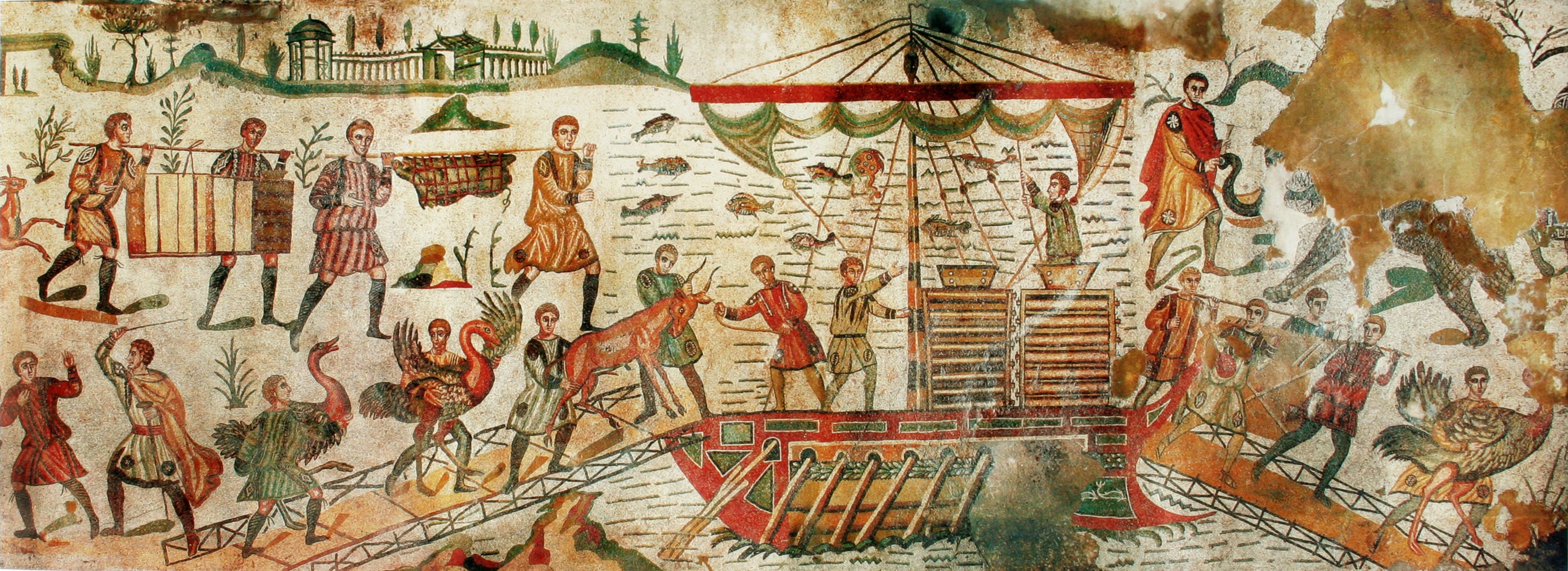Smith College's Moodle
Search results: 853
- Instructor: Alexandra Keller
- Instructor: Alexandra Keller
Gender, Sex, and Sexuality in Russian Culture
Ruth Averbach
Pierce Hall, Room 104
Course Description
In June 2013, President Vladimir Putin signed into law a ban on ‘propaganda’ that advocates for non-traditional sexual relationships, homosexuality, and transgenderism. Despite this, Russia has at times in its history been a bastion of gender and sexual diversity. Nevertheless, Russia’s queer and trans heritage is often neglected in scholarly and popular conceptions of the country. Students in this course examine Russia’s queer and trans history through literature, visual arts, and music. Topics include the history of “homosexuality” and “heterosexuality,” the medical history of transsexuality, gay and lesbian subjectivities, trans autobiography and fiction, and the ethics of queer scholarship.
Course Objectives
This seminar is designed to achieve several goals. First, this course develops students’ critical thinking and writing skills. Students will learn how to outline, draft, and revise papers, effectively summarize literary texts, analyze specific themes in a work, contextualize artistic works in a proper cultural and historical context, understand and respond to critical works, and construct a short research paper with a coherent thesis and clear line of argumentation. Second, students will gain a broad overview of Queer and Trans Russian history and culture and engage with understudied source materials, perspectives and experiences concerning gender, sex, and sexuality.
Course Requirements
Assignments
Weekly reading responses (appx. 250 words)
First Paper: Summary of a Literary Text (3 pages)
Second Paper: Thematic Analysis (5 pages)
Third Paper: Research and Argumentation (7 pages)
Draft paper due one week before final version
Students will read and respond to a classmate’s paper within a week of turning in final drafts
Revisions will be turned in a week after receiving their peer review and instructor feedback
Due dates for all assignments are listed in the reading schedule
Grading Rubric
Attendance and Participation – 20%
Reading Responses – 20%
First Paper – 15%
Second Paper – 15%
Third Paper Presentation – 10%
Third Paper – 20%
Course Expectations
It is essential for students to complete assigned readings, attend course meetings, and contribute to class discussions. Feel welcome to use electronic devices, but do not let them distract others or yourself from the lesson. Please let Ruth know as soon as possible if you are ill or must miss class for any reason.
Academic Integrity
Students are expected to uphold all Smith College policies on academic integrity. AI is only acceptable for proofreading for grammar, punctuation, and spelling. All outside sources used in written assignments must be cited properly.
Accommodations
If you need any accommodations to participate in and complete the course, please contact the Accessibility Resource Center (College Hall 104; arc@smith.edu; 413-585-2071) and let Ruth know how she can best serve your needs.
COURSE READING SCHEDULE
Week II: Sexuality and Russian Civilization
M: (De)legalize Gay
Igor Kon, The Sexual Revolution in Russia (11-38)
Foucault, “The Birth of Homosexuality” from The History of Sexuality, vol. II
Olearius, The Travels of Olearius in 17th Century Russia
W: Is Gender, Sex, and Sexuality Universal?
Xenia the Servant of God, or Andrei Fyodorovich the Holy Fool
Benjamin, excerpts from The Transsexual Phenomenon
Mayhew, “Holy Foolishness and Gender Transgression in Russian Hagiography” (optional)
Week III: Is Homosexuality a Psychological Complex?
M: The Endless Anxieties of Nikolai Gogol
Gogol, “The Nose”
Gogol, “Ivan Fyodorovich Shponka and His Aunt”
Freud, excerpts of “Certain Neurotic Mechanisms in Jealousy, Paranoia, and Homosexuality”
Freud, letter to father of a homosexual boy
W: H-o-t t-o Gogol: Gay Iconography
Gogol, The Overcoat
Gogol, “Nevsky Prospect”
Gogol, “Woman”
First Paper Draft Due Sunday
Week IV: Aleksandr Aleksandrov: Russia’s First Transsexual Writer
M: Conceptualizing Transsexual Autobiography
Aleksandrov, The Cavalry Maiden, Chapters I-VI
Zirin, “Introduction” to English translation of The Cavalry Maiden
W: The Unmaking of a Man
Aleksandrov, The Cavalry Maiden, Chapters VII-XIII
First Paper Due Sunday
Week V: Aleksandrov’s Fiction
M: Trans Men and Misogyny
Aleksandrov, Nurmeka
Zazanis, “On Hating Men (and Becoming One Anyway)”
W: Colonialism and the Transsexual Empire
Aleksandrov, Nurmeka
Puar, excerpts from Terrorist Assemblages (optional, Ruth will summarize)
First Paper Peer Review Notes Due
Week VI: Between Sex and Sexuality
M: Compulsory Heterosexuality
Gan, “The Ideal”
Rich, “Compulsory Heterosexuality and Lesbian Existence”
W: Compulsory Homosexuality
Pomialovsky, Seminary Sketches
First Paper Revisions Due Sunday
Week VII: Becoming ‘Gay’
M: Homosexual or Gay?
Kuzmin, selected poems
Kuzmin, Wings
Somov, selected paintings
W: Is Sexuality an Identity or a Behavior?
Kuzmin, Wings (finish)
Rozanov, excerpts from “People of the Moonlight”
Week VIII: Becoming ‘Gay’ (Cont’d); Lesbianism and Gender Expression
M: Lesbian Gender and Sexuality
Zinovieva-Annibal, The Tragic Menagerie
W: Lesbian Gender and Sexuality (cont’d)
Zinovieva-Annibal, The Tragic Menagerie (continue)
Second Paper Draft Due
Week IX: Lesbianism and Gender Expression (Cont’d)
M: What is the Difference Between Lesbians and (Trans) Men?
Zinovieva-Annibal, The Tragic Menagerie (finish)
Shrier, excerpts from Irreversible Damage
Wittig, excerpts from The Straight Mind (optional, Ruth will summarize)
W: Sapphic Verse
Gippius, selected poems
Parnok, selected poems
Tsvetaeva, selected poems
Sappho, selected poems
Second Paper Due
Week X: Pre-Revolutionary and Revolutionary Sexuality
M: Is Male Heterosexuality Gay?
Gorky, “26 Men and a Girl”
Mulvey, excerpts from Visual Pleasure
W: Is Homosexuality Communist?
Trifonov, selected poems
Kharitonov, “One Boy’s Story” and “Alyosha-Serezha”
Harry Whyte, letter to Stalin
Second Paper Peer Review Notes Due
Week XI: Transsexuality, Soviet Style
M: Transsexuality and Medicine
Gill-Peterson, excerpts from Histories of the Transgender Child
Benjamin, The Transsexual Phenomenon
Blanchard, excerpts from articles on transsexual etiology
Kalnberz, excerpts from My Time
W: Is Gender a Social Duty?
Hammer & Sickle (1994)
Bogdan Popa, Decentering Queer Theory
Second Paper Revisions Due
Week XII: Late and Post-Soviet Sexuality
M: Late Soviet Sexuality
Past, “No Offense in Love”
Rybikov, “The Lay of the Gay Slavs”
Fiks, selected poems and photographs
W: Post-Soviet Tolerance and Intolerance in Popular Culture
t.A.t.U, 200km/h in the Wrong Lane
Strykalo, “vse resheno”
2013 Anti-Gay Propaganda bill
Selections of recent American anti-gay and trans bills
Third Paper Outlines Due
Week XIII: Trans Art in an Age of Reaction
M: Between Homosexuality and Transsexuality
Outlaw (2019)
W: Being Trans When Being Trans is Illegal
Letter, A City Flower
Selections, What Is a Woman?
Dugin, selections from The Fourth Political Theory and interview with Tucker Carlson
Third Paper Drafts Due Sunday
Week XIV: Conclusion and Presentations
M: Student Presentations
Students will present their final projects in progress in a conference format
W: Conclusion
Student presentations will continue
Concluding lecture
Third Papers Due (one week after final date)
- Instructor: Ruth Averbach

In his book Totemism, Claude Lévi-Strauss wrote, “species are chosen not because they are good to eat, but because they are good to think with.” This course takes up this issue in the context of ancient Greece and Rome, examining how ancient ideas about non-human animals inform our own. Beginning with Homer, we will consider animals as they appear in various Greek and Latin texts as foods, friends, tools, symbols and more. Ancient texts will be supplemented with modern scholarship and theory as we explore how humans and animals have been distinguished and connected, as well as why thinking about animals is so crucial to human culture.
- Instructor: Colin MacCormack
The ideal of American citizenship has long laid claim to universal inclusivity and openness: citizenship, as both a legal status and a political-cultural identity, are supposedly accessible to all individuals within the polity. Based on a robust concept of freedom, and grounded in a fundamental notion of equal personhood, United States citizenship promised a form of political belonging free from the kind of status restrictions that defined citizenship in the aristocracies of 18th and 19th century Europe.
Yet the history of American citizenship is one marked by the exclusion, domination, and disenfranchisement of various groups defined as racially other, and thus outside the bounds of citizenship. How do we understand the coexistence of claims to equal democratic citizenship in the U.S. alongside the historical realities of enslavement, extermination, and other forms of racial violence? What does it mean to be an American citizen, and how as that meaning been shaped by the formation of race across space and time? Is citizenship a universal concept – open, in principle, to anyone? Or is it an exclusive concept – reserved for a select few? If racial injustice is not separable from citizenship, but somehow productive of it – that is, if racist structures shape how citizenship is interpreted and practiced – then can American citizenship be remade along more egalitarian lines?
This course will interrogate these questions, asking how race and citizenship have constituted each other over time. Through readings in political theory, American political development, history, and sociology, we will examine dimensions of American citizenship that emerge with, through, and against the creation of racial hierarchies: citizenship as a legal status, as a political-cultural identity, as civic responsibilities and cultural norms, and as a particular arrangement of institutional practices that define who is “inside” and “outside” the political community. Though this course focuses on the political theory of citizenship and not a historical survey, texts will engage with indigenous sovereignty, colonial America, slavery and the antebellum period, Jim Crow, and immigration through the 19th and 20th centuries. While much of the course is devoted to exploring the historical production of “Black” and “white” as categories of political belonging, we will also consider how notions of race and citizenship have shifted and developed through the experiences of First Nations and immigrant groups.
Throughout our discussions, we will also examine how dominated and oppressed racial groups have mobilized by both adopting and challenging prevailing notions of what it means to be a citizen. At the end of the course, we will end by considering how American citizenship might be refashioned in order to promote and sustain equal freedom and racial justice.
- Instructor: Erin Pineda
